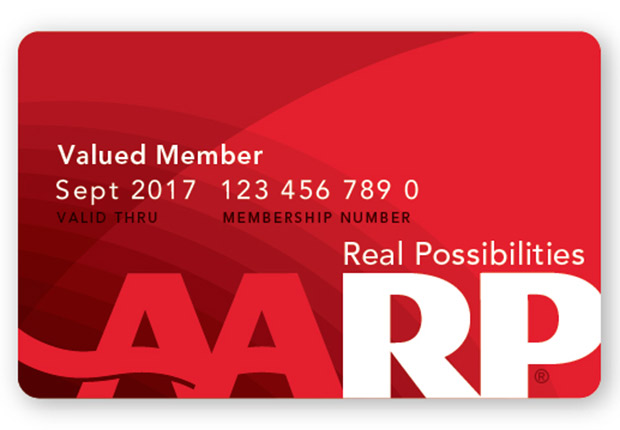Maximize Your Money on Milestone Birthdays
Don’t just blow out your candles — expand your accounts, too
by Jeff Yeager, AARP
-
Istock
Perk Up
En español l Bob Hope once said about birthdays, “You know you’re getting old when the candles cost more than the cake.” But birthdays aren’t all bad. In fact, when it comes to your finances and saving money, these milestone birthdays come with some special perks.
1 of 15 -
Istock
Birth
A child can have a savings account in his or her name opened at birth by an adult. While there is no minimum age to have a savings account, the account is typically managed by a parent or guardian until the child reaches a certain age. At 18, the account generally is converted to a regular adult savings account or a student checking account.
2 of 15 -
Istock
Age 18 (in Some States)
If you live in California, D.C., Kentucky, Louisiana, Maine, Michigan, Nevada, New Jersey, South Dakota, Oklahoma or Virginia you can open a brokerage account and trade stocks. In the other 40 states, you’ll have to wait until you’re 21. Prior to that age, minors can have their names attached to either a guardian account or custodial account opened by a parent or legal guardian.
3 of 15 -
Getty Images
AARP Offer: Protect your money, grow your nest egg
Take advantage of great information and tools to help build your future and prevent your money from going down the drain. Join AARP and start saving for your dreams today.
4 of 15 -
Istock
Age 21
This is the minimum age you can qualify for a credit card without the cosignature of a parent, guardian or spouse, or without showing proof of sufficient income to cover the credit obligation. Thankfully, the Credit CARD (Card Accountability Responsibility and Disclosure) Act of 2009 made it much more difficult for anyone younger than 21 to qualify for a credit card, dramatically reducing the previous practice by many card companies to aggressively market credit card services to college students and other young people.
5 of 15 -
Istock
Age 25
This is the age at which your car insurance rates will likely drop. Although a lot of factors determine car insurance premiums, usually at 25 you’ll be eligible for lower rates from most insurance companies.
6 of 15 -
Istock
Age 26
Under the Affordable Care Act (ACA), children can now be added or kept on their parents’ health insurance until they turn 26. Keeping an adult child on your insurance is at the discretion of the parent, and you can choose to do so even if the child is married, attending school, not living with you or not dependent on you. Take note: 26 is when this perk expires — not, like the other examples on this list, when it begins. For more information on this aspect of the ACA, see healthcare.gov/young-adults/children-under-26.
7 of 15 -
Istock
Ages 39 (Women) and 48 (Men)
These are the average ages at which income peaks and stops growing significantly faster than inflation for U.S. workers with a college degree or higher. According to a study by payscale.com, the typical pay peak for such a male worker is $95,000 per year at 48, and the average pay peak for his female counterpart is $60,000 per year at 39. So men not only earn more than women, but men earn higher wages for a significantly longer period of time.
8 of 15 -
Istock
Age 50
Let the discounts roll with an AARP membership! Once you hit the “Big Five-Oh”, it’s time to start asking for a “senior discount” wherever you spend money. Some establishments make you wait until you’re 55, 60 or even 65, but it never hurts to ask. The AARP membership you’re eligible for at 50 can save you a bundle, with discounts on shopping, travel, entertainment, insurance and more.
9 of 15 -
Istock
Age 59½
This is the minimum age at which you can normally withdraw funds from your 401(k) account without incurring a penalty. To encourage people to use 401(k) accounts for retirement savings, the IRS penalizes investors with a 10 percent penalty for withdrawing funds from such accounts before age 59½, although certain exceptions apply. After 59½, no penalties apply, but you’ll still be liable for income taxes on withdrawals.
10 of 15 -
Istock
Age 62
Get a lifetime pass to all national park and federal recreation sites for only $10! With more than 400 national parks and thousands of other federal sites included, this is truly the deal of a lifetime. The pass admits the pass holder and passengers in a noncommercial vehicle at per-vehicle areas and the pass holder plus three adults at walk-up fee areas.
11 of 15 -
Istock
Age 65
This is the age at which most Americans qualify for Medicare. Singer-comedian Kinky Friedman once joked that before turning 65 he was “too young for Medicare — and too old for women to care.” Once you hit the magic age of 65, Medicare should kick in to at least help with the cost of health care, even though the program does not cover all medical expenses or the cost of most long-term care. Find more information on Medicare at this Social Security website page.
12 of 15 -
Istock
Age 67
If you were born in 1960 or later, this is currently considered your “full retirement age” for Social Security, the age at which you are entitled to receive 100 percent of your calculated benefits. Under current rules you can begin drawing benefits at a reduced rate at 62. See the Social Security website for more information and details, which are both complicated and changing.
13 of 15 -
Istock
Age 70
This is the age at which there is no additional increase in Social Security benefits if you delay filing for them. If you wait to start drawing Social Security beyond your full retirement age (currently 67 for those born in 1960 or later), monthly benefits increase — but only until you hit 70. Benefits vary but, for example, by delaying until 70, someone born between 1943 and 1954 will receive 132 percent of the benefit he or she would have received at full retirement age.
14 of 15 -
15 of 15
Also of Interest
- 10 places to ask for a discount
- 13 ways to reduce stress
- Find great volunteer opportunities in your community
Join AARP Today — Receive access to exclusive information, benefits and discounts















